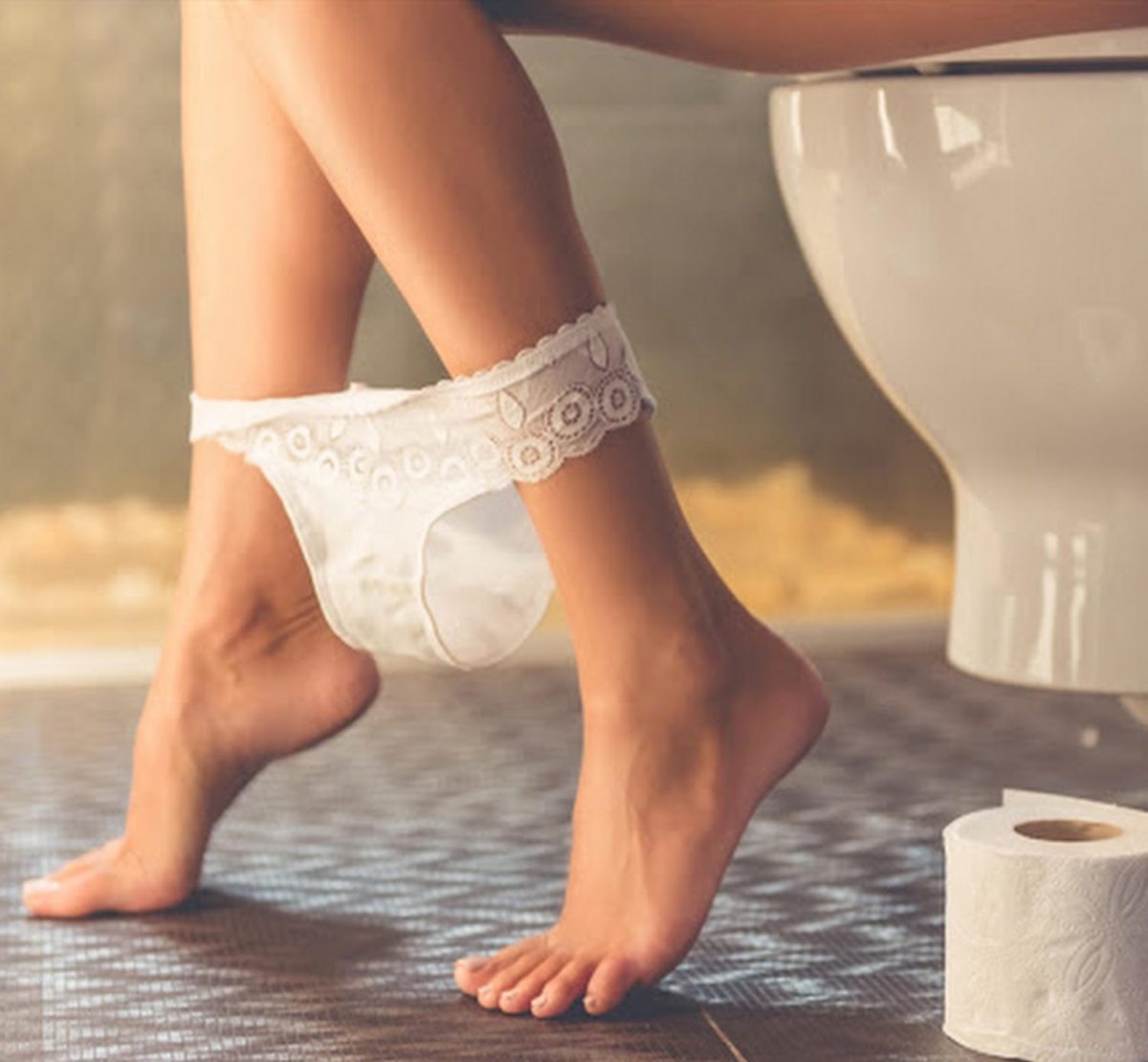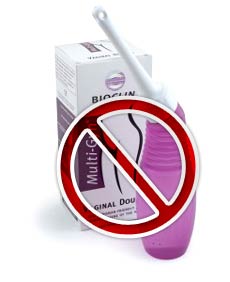By Aleece Fosnight, Physician’s Assistant and Medical Director at Aeroflow Urology.
According to the American Sexual Health Association, what keeps you healthy also keeps your vagina healthy. A number of bacterial and fungal infections can occur in the vagina during a woman’s lifetime and the different sexual-reproductive phases she goes through. This makes daily vaginal hygiene and care a must for all women.

Aleece Fosnight, MSPAS, PA-C, CSC, CSE who has been a physician assistant for the past 7 years and a sexual health counselor and educator for almost 4 years answers FAQ’S on,
Do’s & Don’ts of Vaginal Care That Every Woman Should Keep in Mind
Why Avoid Douching?

Douching is the internal cleaning of the vagina, which sounds hygienic on the surface level but can actually be very damaging to your vaginal health. The pH balance of your vagina is very delicate, and even mild cleaning products can irritate the sensitive skin there.
Your vagina actually cleans itself and maintains its own healthy microbial balance, douching disrupts that balance and as a result has been associated with Bacterial Vaginosis, pelvic inflammatory disease, and even some evidence to show it’s linked to ectopic pregnancies, etc. Some women have even experienced infertility after prolonged usage of douching throughout their lives.
Misconceptions around what is “normal” for women’s vaginal health, often perpetuated by pop culture and outdated sex education courses, lead some 1 in 5 women between 15 and 44 to douche because they think their vagina need to smell differently than it does naturally. If you’re concerned about odor or there’s been a dramatic change in the odor of your vagina and its discharge, you should speak to a medical professional. The solution could be as simple as changing the kind of underwear you’re wearing, or in some cases, be a sign of an infection, either way your doctor will have the answers you’re looking for and can help you better understand how and how not to best care for your vagina.
Some women also are mistakenly under the impression that douching can prevent sexually transmitted infections or pregnancy, which leads to them continuing the practice and even passing it on to people they know.
Don’t: douching may also lead to an increased risk of STIs since the act of douching can actually push infection-causing bacteria further up inside the vagina.
Relationship Between Healthy Diet & A Healthy Vagina

The ideal range for a balanced vaginal pH is between 3.5 to 4, when it strays too far outside the range for too long it can lead to UTIs. Thankfully, maintaining a healthy diet can help keep your system regulated and protect your vagina. The age old advice of cranberries for UTI prevention is actually helpful advice.
While it doesn’t cure a UTI as some have claimed, fresh cranberries are full of antioxidants, which are powerful infection fighters that help keep bacteria from sticking to the bladder wall and causing infections.
Probiotic-rich foods are also great preventative care for the vagina, and also good for gut health! The cultures in foods like greek yogurt give us a boost of good bacteria, which is also very helpful in preventing yeast infections.
Water is a key part of whole body health, but also especially good for vaginal health for those experiencing dryness! Keeping hydrated helps boost energy and circulation and a lack of water can make your vulva feel dry and lead to scratching, which could make you more susceptible for vaginal infections.
Don’t Eat Excess Carbs and Sugar
In terms of what to avoid, excess carbs and sugar can increase the possibility of infection. So women who are particularly for women who suffer recurring vaginal infections. The reason behind this is that gaginal secretions contain sugar and yeast tends to thrive in sweet, moist environments making it the ideal environment for a yeast infection to grow.
While there’s no magic food, generally speaking as long as you’re eating a well balanced diet, and keep hydrated you’ll be overall healthy and your vagina will be too.
Beyond food the vagina is a muscle and exercising it can also help its overall health.
Use of lubricants? When you should or should not and which are safest to use?
Artificial lubricants can be used to reduce vaginal dryness, they’re available in many different textures, flavors, and materials to suit any and all users’ needs.

Vaginal tissue is naturally moist, fluid from the cervix and secretions from glands help keep the vagina lubricated. Contrary to long-held misconceptions, occasional dryness is fairly common but chronic instances can be a sign of either menopause or a medical issue, if you’re experiencing chronic symptoms you’ll want to speak to your doctor.
A little known fact as well, is that oral contraceptives can cause vaginal dryness, so it’s important to keep that in mind if that is the kind of birth control you use.
Don’t: The biggest takeaways to consider is that no matter which you choose, you should always avoid any lubricants that contain any of the following ingredients: parabens, fragrances, menthol, and glycerin.
There are three main types of vaginal lubricants
- Water based: The standard recommendation is to use a water based lubricant, but they often contain glycerin but glycerin free options are more suitable for people who get recurrent yeast infections. Sliquid, is a great brand for water based lubricants.
- Silicone based: The benefit of a silicone based lubricant is that it lasts longer than water based alternatives , making them a good option for people with more severe vaginal dryness. However, silicone based lubricants are not safe to use with silicone sex toys. I personally recommend Uberlube.
- Lastly, oil based lubricants include many readily available products, such as kitchen oils but synthetic versions often include ingredients like mineral oil and petroleum jelly, which while effective can irritate the vulva so I would recommend avoiding these. It’s also critical to note that oil-based lubricants can break down condoms and make them less effective, so I would strongly advise you to opt for an alternative when using them.
- For more natural options, coconut oil and almond oil are typically safe options, but these aren’t without their risks. For those who have recurrent UTIs coconut oil may increase chances of infection.
- Good Clean Love, makes great natural lubricants that also ship in sustainable packaging and are LGBTQ+ friendly.
What Impact Clothing Has on Vaginal Health/Hygiene?
Yeast thrives in warm, moist climates. Wearing tight clothing, especially in non-breathable fabrics common in sportswear can increase the likelihood of yeast overproduction and subsequently an infection. It’s best to get out of athletic wear as soon as possible, or at least opt for more breathable fabrics, like cotton.
The same sentiment goes for the type of underwear you wear, when possible opt to avoid synthetic, plastic based fabrics. Additionally, sleeping without underwear can decrease the chances of infection by allowing the vagina access to fresh air.
It’s also the reason why it’s important in the summer months to change out of wet swimsuits as soon as possible, as the wet fabric can be a breeding ground for yeast infections.
Tips for General Vaginal hygiene, Prevention and Cleaning

- The first and most important is that the vagina is like a self cleaning oven, a less is more approach is best. You don’t need lots of products or intense cleansers, wash with warm water if you need to feel clean but keep thing simple, your vagina knows how to take care of itself and adding things into the mix can do more harm than good.
- Increase your water intake! People would be shocked at how much drinking water helps all different parts of the body, but especially in helping vaginal dryness. You’ve got to stay hydrated to help avoid infections and dryness.
- Avoid the overhyped “vaginal hygiene trends” you might see on social media. Things like yoni eggs are often made of porous materials and trap bacteria furthering the risk of infection. Most of the time they’re just trying to sell you products you don’t need by preying on insecurities and knowledge gaps so don’t buy into the craze, stick to the tried and true methods we’ve outlined here.
How to Identify Irregular Odors or Signs of Infection, and when to see a doctor?

It’s important to understand that what is normal for you can vary from others. Especially if you aren’t on oral contraceptives, you make see more frequent changes in your discharge at various points in your menstrual cycle.
Paying attention to your discharge can help you better understand what your normal is and when you might need to seek medical attention, if something doesn’t feel right it’s best to see medical care and get evaluated.
Typically speaking though, the rule of thumb is that discharge that is clear, milky, and/or light yellow are all normal. Discharge that could be cause for concern might be green, frothy or pungent in odor. But, again, it’s important to know what your normal is and observe your discharge on a regular basis to note how it may change over time.
After Sex Recommendations To Prevent Vaginal Infection
- When possible hopping in the shower after sex is the best way to keep your vagina clean, by giving it a light external wash only with water, and if necessary a very mild soap. Your hands will also need a wash as well! Your fingers and nails can transfer bacteria to your vagina and cause an infection.
- Peeing after sex is also a vital component of after care, as bacteria can get into your urethra, and cause a UTI. When you pee, you flush the germs out therefore reducing your chances of infection.
- If you experience any soreness, or irritation, applying ice after sex can be helpful in reducing any unwanted symptoms.

- Staying hydrated before, during and after sex is also key, as it will cause you to pee more frequently and continue to flush any possible bacteria stuck in the urthera out.
- Wearing no pants or underwear after sex will also help to prevent infections, but if you find it’s necessary to wear clothes after, stick to loose fitting garments only.
- Communication is also important! Speaking with your partner about any discomfort or things that might improve your experience with sex and reduce istances of irritation/discomfort.
For those women who are pregnant, these tips are especially important to follow as pregnant women are more susceptible to vaginal infections, given the fluctuating hormones in their system, increased blood flow to the region and a weakened immune system during pregnancy.
Bio: Aleece is a Urology Medical Advisor at Aeroflow Urology, and a board-certified physician assistant specializing in sexual medicine, women’s health and urology. She is also a nationally certified sexual health counselor and educator, providing sexual health education, information and personalized counseling to patients of all ages.
Aleece is also the founder of the Fosnight Foundation, a non-profit organization dedicated to the education and training of professionals in the sexual health field and providing funding for access to healthcare services in her local community.
Disclaimer
The Content is not intended to be a substitute for professional medical advice, diagnosis, or treatment. Always seek the advice of your physician or other qualified health provider with any questions you may have regarding a medical condition.